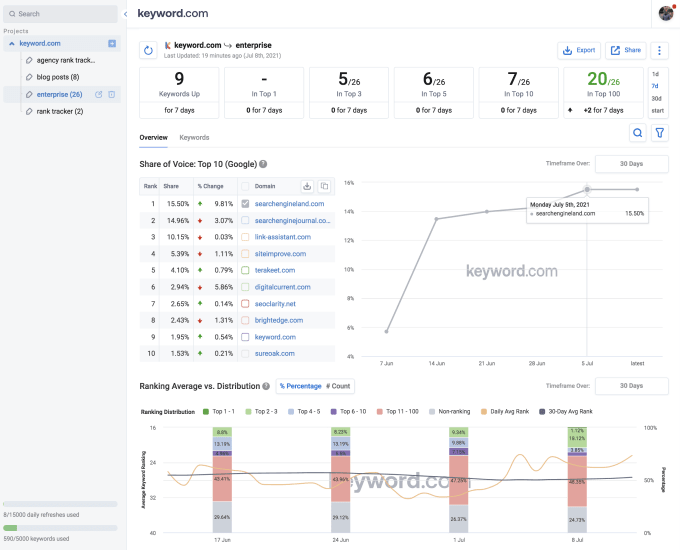In the ever-evolving landscape of digital marketing, understanding the concept of accurate keyword position is crucial for businesses striving to improve their online visibility. The position of your keywords in search engine results can significantly impact the amount of traffic your website receives. If you are not ranking well for the keywords that matter most to your audience, you may be missing out on valuable leads and conversions. This article will explore the intricacies of achieving an accurate keyword position, offering insights, strategies, and expert tips to help you climb the search engine rankings.
Moreover, an accurate keyword position not only enhances visibility but also builds credibility. When your website appears on the first page of search results, users are more likely to trust your brand, leading to higher click-through rates. Consequently, understanding how to optimize your content and improve your keyword positioning can lead to long-term success in the digital marketplace. In this guide, we will delve deep into the factors influencing keyword positions and the best practices for optimizing your content.
Finally, this article will answer some of the most common questions related to keyword positioning. By the end of this read, you will have a comprehensive understanding of how to achieve an accurate keyword position and utilize it as a powerful tool in your digital marketing arsenal. So, let’s dive in and unlock the potential of your keywords!
What is Accurate Keyword Position?
Accurate keyword position refers to the specific rank that a keyword holds in search engine results pages (SERPs). This ranking is determined by various factors, including the relevancy of your content, the quality of backlinks, and the overall SEO strategy employed on your website. The goal of any SEO campaign is to achieve the highest possible keyword position for targeted keywords to drive organic traffic to your site.
Why is Accurate Keyword Position Important?
Achieving an accurate keyword position is vital for several reasons:
- Increased Visibility: Higher rankings lead to greater visibility, making it more likely that users will click on your link.
- Enhanced Credibility: Users tend to trust websites that rank well, associating higher positions with authority and relevance.
- Higher Click-Through Rates: Studies show that the majority of clicks go to the top three positions on SERPs.
- Better ROI: An effective SEO strategy that focuses on keyword positioning can lead to increased conversions, resulting in a better return on investment.
How Can You Measure Accurate Keyword Position?
Measuring your keyword position can be done through various tools that track rankings over time. Popular tools include:
- Google Search Console
- SEMrush
- Ahrefs
- Moz
These tools provide insights into where your keywords are ranking, how they fluctuate, and which ones are driving traffic to your website.
What Factors Influence Keyword Position?
Several factors can impact the accuracy of your keyword position:
- Content Quality: High-quality, relevant content can boost your rankings.
- Backlinks: The number and quality of backlinks to your site play a significant role in your keyword position.
- User Engagement: Metrics like bounce rates and time spent on site can influence rankings.
- On-Page SEO: Proper use of keywords in titles, headings, and meta descriptions can enhance visibility.
How Can You Improve Your Accurate Keyword Position?
Improving your keyword position requires a strategic approach. Here are some effective methods:
- Conduct Keyword Research: Identify high-volume keywords relevant to your niche.
- Optimize Your Content: Ensure your content is engaging and includes targeted keywords.
- Build Quality Backlinks: Focus on acquiring backlinks from reputable sources.
- Monitor Your Performance: Use tools to track your keyword positions and make adjustments as needed.
What Role Does User Intent Play in Accurate Keyword Position?
User intent refers to the purpose behind a user's search query. Understanding user intent is crucial for achieving an accurate keyword position, as it helps you create content that aligns with what users are looking for. There are generally three types of user intent:
- Informational: Users seek information or answers to their questions.
- Navigational: Users intend to find a specific website or page.
- Transactional: Users are looking to make a purchase or complete a transaction.
By aligning your content with user intent, you increase the likelihood of ranking higher for relevant keywords.
How Often Should You Monitor Your Keyword Position?
Regularly monitoring your keyword position is essential for maintaining and improving your rankings. It is recommended to check your keyword positions at least once a month. However, during a new campaign or after significant changes to your website, more frequent checks may be necessary. This allows you to quickly identify fluctuations and adjust your strategies accordingly.
Conclusion: Achieving Accurate Keyword Position is Key to Success
In conclusion, achieving an accurate keyword position is fundamental for any digital marketing strategy. By understanding the importance of keyword positioning, measuring it effectively, and implementing strategies for improvement, you can enhance your online visibility and drive more traffic to your site. Remember to focus on content quality, user intent, and continual monitoring to ensure you stay ahead in the competitive digital landscape. The journey to an accurate keyword position may require time and effort, but the rewards are well worth it.
You Might Also Like
Tupac Shakur: The Icon And His Height In FeetBeware Of McAfee Scam Emails: Protect Yourself From Fraudulent Attempts
Unveiling The Height Of Lucas McCain: A Closer Look
The Mystique Of The Darkest Person On Earth
Unveiling The Legacy Of The Filthy Kings
Article Recommendations
- Is Baron Trump Autistic
- Kim Erome
- Diddy Party Jessica Alba
- Diddy And Justin Bieber
- Prince Harry Children 2024
- Zin Manga
- Aimee Maye
- Matt Czuchry Relationships
- Jessica Capshaw Husband
- Streameastis


